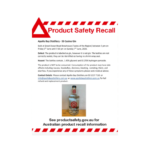Thumbnail Sketch of Defences to Criminal Charges

The main defences available in criminal law are:
1. Self Defence
This is when you are acting in reasonable defence of yourself, another person or property.
An example is a bar fight when you punch someone back after they attack you.
2. Duress
This is when you’re forced to commit an otherwise unlawful act due to an imminent threat of death or serious harm against you or another person.
An example would be if a person holds a gun to your head and tells you to assault another person or you will be shot.
3. Necessity
This is when you’re faced with an emergency situation and commit a reasonable but otherwise unlawful act to avoid imminent and serious danger to yourself or another person.
An example might be if you are a being chased by someone who is threatening to hurt you and you push people out of the way.
4. Lawful Correction
This is a defence available to parents, teachers and guardians who are charged with assaulting children.
However, the physical force must be reasonable and warranted given the characteristics of the child and nature of the alleged misbehaviour.
An example might be smacking a child on the bottom for being naughty.
5. Claim of Right
This is a defence available to those charged with an offence involving ‘larceny’ (or stealing) and your actions arise from a genuine belief that you have a legal entitlement to the subject property.
An example might be if you believe that someone has taken your mobile telephone and you reach into their bag to get it back, but the phone you take is actually theirs. Of course, you would need to return the item soon after realising your mistake.
6. Honest and Reasonable Mistake
This defence applies to ‘strict liability’ offences, which are those where the prosecution does not need to prove a mental element such as intention or recklessness.
The defence is available where you have an honest belief that is reasonable but mistaken, and the mistake results in the commission of the offence.
Examples include:
Driving whilst suspended – if the RMS (former RTA) sent your notice of suspension to the wrong address due to a fault of theirs, and it was not reasonable to expect you to otherwise be aware of the suspension. For example, where a camera detected speeding offence results in a demerit point suspension but the notice is sent to the wrong address.
Drink Driving – if your drink was ‘spiked’ and you could not reasonably be expected to know.
Going to court for a traffic offence?
If you are going to court for a traffic offence, call or email Sydney Criminal Lawyers anytime to arrange a free first consultation with an experienced, specialist traffic lawyer who will accurately advise you of your options, the best way forward, and fight for the optimal outcome in your specific situation.






